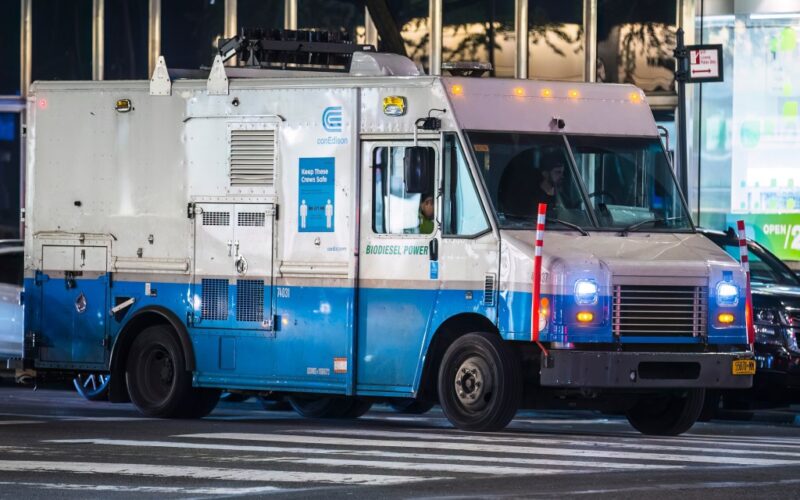In January, Con Edison filed applications with the New York Public Service Commission (PSC) to increase electricity and natural gas rates approximately 30% over the next three years. Con Ed’s rates are already among the highest in the country, and New York customers are feeling the pain — requests for help paying utility bills is up nearly 14 times over the past five years.
In principle, Con Ed’s rates are supposed to reflect their actual cost of service, including a reasonable profit. What most customers don’t realize is that Con Ed’s rates include two “costs” that have nothing to do with providing service.
New York City’s utility-specific property taxes and Con Ed’s unreasonable profits together will add approximately 25% to the average customer bill under Con Ed’s proposed rates. New Yorkers are getting ripped off — and there’s something state and city officials can do about it.
Many states and cities impose utility-specific property taxes or similar fees, but New York City’s are the highest in the country. As Con Ed executives have testified, while utility properties are 3% of total city property value, they account for 7% of property taxes. In other words, the New York City Council requires Con Ed — or, more accurately, its customers — to pay more than double the property tax rate paid by other NYC property owners.
Gov. Hochul claims to have “reversed a long-standing trend … of siphoning revenue from ratepayers” to government coffers by appropriating state funds to assist utility customers, but a Band-Aid is no substitute for the tourniquet that is needed.
The cumulative $500 million of relief for the entire state since becoming governor in 2021 is a tiny fraction of the more than $3 billion in property, state income, and other state and local taxes Con Ed alone collects in rates from its captive customers each year. According to Con Ed’s rate case applications, property taxes account for approximately 20% of its combined electric and gas revenue. Reducing Con Ed’s NYC property taxes to its pro-rata share would reduce Con Ed customer bills by 11%, on average.
The PSC regulates Con Ed’s profits, setting them equal to the amount of shareholder capital invested multiplied by a PSC-authorized rate of return on equity (ROE). According to long-standing legal and regulatory principles, the regulated ROE should equal the utility’s market-based cost of equity (COE).
More than 80 years ago, the Supreme Court, in the seminal Hope Natural Gas case, determined this level of profit ensures rates are “just and reasonable” and adequately balances the interests of consumers and investors. Academics, utility executives, and investors all recognize that utilities have requested, and regulators have quietly approved, ROEs well above COE for decades, extracting from customers tens of billions of dollars per year of unearned and excess utility profits.
Con Ed’s applications request an after-tax ROE of 10.1%. Yet, Wall Street’s largest, most respected financial firms including BlackRock, Goldman Sachs, JP Morgan, and Morgan Stanley agree that the COE for the market as a whole is on the order of 6% to 7%. Utilities are lower-risk and therefore have a correspondingly lower cost of equity, approximately 5.5%.
Con Ed’s pre-tax profits — the amount recovered from customers in rates — account for approximately 19% of Con Ed’s requested electric and gas revenue. Reducing Con Ed’s profits to the statutory level, equal to its market-based cost of equity, would reduce its average customer bills by an additional 9%, saving the average household hundreds of dollars per year.
Con Ed’s unjust taxes and profits are particularly hard on low- and middle-income households, for whom utilities account for a disproportionate share of monthly income. A Census Bureau survey recently found nearly 30% of New York City households had to forego basic necessities, like medicine or food, to afford their energy bills in the past year.
Deliberate policy and regulatory decisions to line the city’s and Con Ed’s coffers while forcing households to make such harsh choices reflect a profound callousness to the everyday economic reality of millions of NYC residents.
Con Ed’s profits have tripled over the past quarter-century, its property taxes quintupled, while its deliveries have been essentially flat. This egregious reverse-Robin Hood pickpocketing of the public must be put to an immediate end.
The City Council, PSC, and Con Ed will undoubtedly urge caution and fear picking fights with property owners and Con Ed shareholders. But basic human empathy demands action. Sometimes duty and courage are the price of leadership. New York’s utility affordability crisis is one of those times.
Ellis is an independent consultant, expert witness in finance and economics in utility regulatory proceedings, and senior fellow for utilities at the American Economic Liberties Project.








